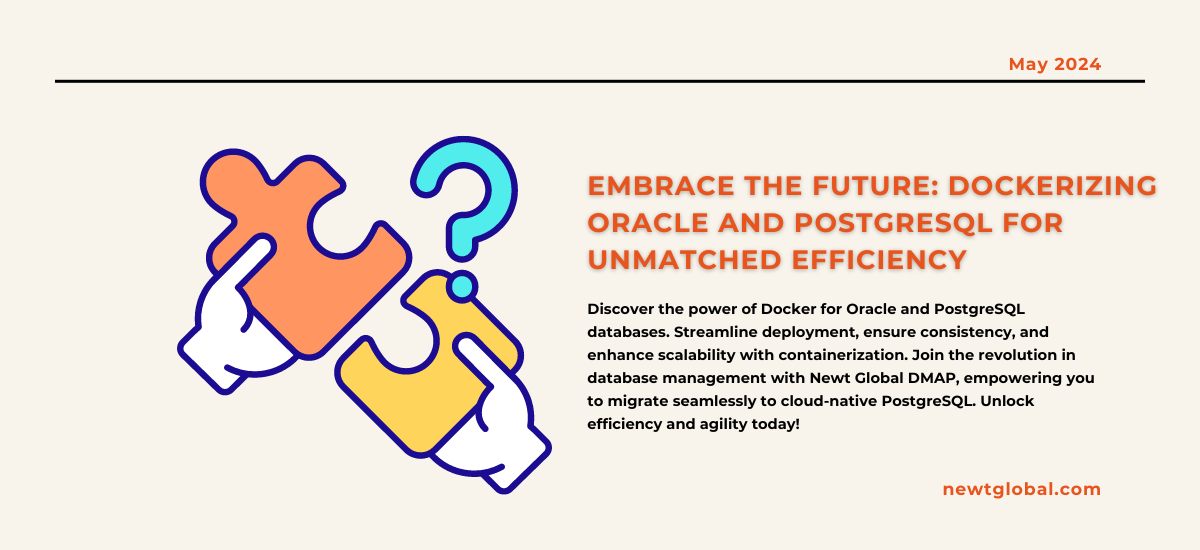
In the world of technology, there’s an exciting shift happening in how software and databases are managed. It’s called containerization, and Docker is at the forefront of this transformation. Docker is changing the way we deploy and manage applications, especially big databases like Oracle and PostgreSQL. Let’s explore why Docker is so important for these databases.
What’s Docker Doing?
Docker is making things simpler and more efficient. It puts applications and everything they need into portable containers. This means no matter where you’re working from—a quiet room or a busy data center—your applications stay consistent and reliable.
Why Putting Databases in Containers is Smart
Using Docker for databases like Oracle and PostgreSQL is brilliant because:
-
-
Consistency Everywhere:
-
Docker keeps your database the same across different stages, from development to production, so everything works smoothly.
-
-
Quick Setup and Easy Growth:
-
Docker lets you set up and scale your databases super fast, adjusting easily as more people use them.
-
-
Saves Resources:
-
Docker uses very little extra stuff to run, which means it saves on power and costs without sacrificing performance.
-
-
Safe and Separate:
-
Each Docker container is like a mini-fortress, keeping its contents safe and not letting problems spread to other areas.
-
-
Easy Updates:
-
With Docker, updating and maintaining your databases is simple and quick, which means less downtime and more up-to-date security.
How to Get Started
To use Oracle or PostgreSQL with Docker, follow these steps:
-
- Install Docker and get familiar with it.
- Download the official Oracle or PostgreSQL image from Docker Hub.
- Use Docker commands to start your database container.
Why Dockerized Databases are Great
Docker is especially useful for developers and testers because it makes setting up and tearing down environments super easy. But it’s also great for running things in a live, production environment because it’s efficient and can handle changes in demand well.
Best Practices for Docker and Databases
To get the most out of Docker for Oracle and PostgreSQL, remember to:
-
- Using Docker Volumes Securely: Store your data safely using Docker volumes to protect it for the long term.
- Setting Up Networks Effectively: Configure your network settings carefully to ensure smooth and secure communication between containers.
- Optimizing Resource Usage: Adjust resource allocation to improve your database’s performance and efficiency.
Conclusion
Moving to containerized database management isn’t just following a trend – it’s like taking a big step into a future full of possibilities and exciting opportunities. Choosing Docker for your Oracle and PostgreSQL databases isn’t just a smart move strategically; it shows how dedicated you are to being innovative, efficient, and flexible. As we’re at the edge of this new beginning, whether you’re experienced in digital technology or just starting out, using Docker containers for your databases isn’t just a good idea – it’s really important.
Uncover the future of database management! Explore our blog on revolutionizing Oracle and PostgreSQL with Docker at Newt Global. Learn about the power of containerization for unmatched efficiency and agility. Plus, discover how Newt Global DMAP enables mass migration from Oracle to cloud-native PostgreSQL, faster, better, and cheaper.
Email us at marketing@newtglobalcorp.com to embark on your migration journey. Embrace innovation today!
